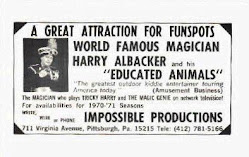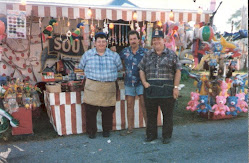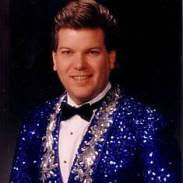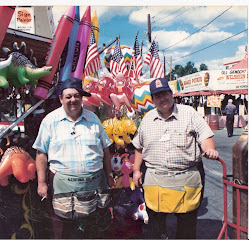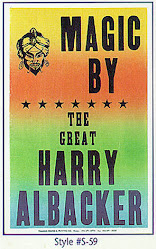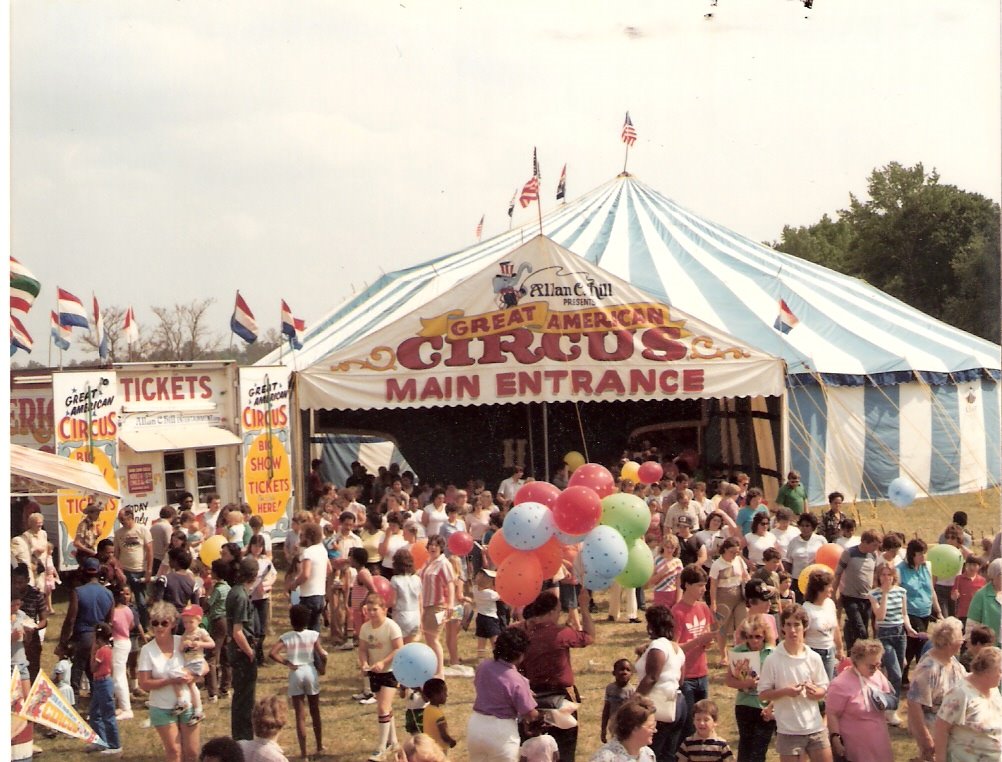When Circuses Came
to Honeoye Falls
by Paul S. Worboys
Reprinted from The Mendon-Honeoye Falls-Lima Sentinel of
August 22, 1991.
PART I
They came by wagon over rutted dirt roads. They came by rail in specially-designed trains. They came over macadam highways in mammoth trailer trucks. And people came from miles around to witness their entrance and marvel at their merriment. The steady heartbeat of life in rural and small town America realized a quickened pulse when visited by a segment of living Americana, the traveling circus.
In the mid-19th century, when Honeoye Falls had developed beyond the status of a crossroads milling hamlet, touring shows of many kinds scheduled performances. Bringing "culture" to the rural folk, minstrel shows, revivals, acting troupes, carnivals and special exhibits were hauled from town to town, charging nominal fees for a chance to open a window on the world. Usually comprising no more than a half-dozen people, appearances ranged from satisfying entertainment to unadulterated sham.
Moving the circus, however, was a logistical nightmare, with its dissimilar elements housed under the irresistible Big Top. Therefore, due to travel limitations, it was slow to capture the American imagination. Europe's concentrated populace was long familiar with its appeal as caravans of animals and entertainers could travel about on improved turnpikes. Children from the Urals to the Atlantic dreamed of being a juggler or an aerialist, a clown or a lion tamer.
While dating to 1793, with a performance before George Washington in Philadelphia, the circus could not easily reach the United States' far-flung inhabitants. By the Civil War, however, with the development of roadways, the advent of railroads, and the spread of population centers large and small, the American landscape was crisscrossed by a variety of nomadic shows.
Scant references note that several circus troupes visited Honeoye Falls in the decades prior to 1880, perhaps as far back as the 1850s, and lacking outside entertainment, the village sometimes created a home-grown show, such as the march of the "Ancient Horribles," when citizens and conveyances paraded through the streets in hilarious attire. In the Centennial celebration of July 4, 1876, the revelers built life-size elephants constructed of barrel hoops and canvas. The "carcasses" were later cast into the field near the New York Central Railroad bridge above the falls, and train travelers passing by covered their noses at the perceived stench.
The first documented circus was October 24, 1883, when "VAN AMBURGH'S GREAT SHOW" came to town. With half-page ads in the Honeoye Falls Times, the buildup worked the citizenry into fits of expectations:
PART II TOMORROW



















